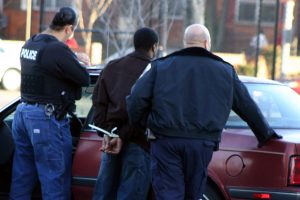
By David Wilfong, NDG Contributing Writer
Throughout the public forums held for judges’ races in the Dallas County Democratic primary, the issue of bail reform was constantly raised by candidates seeking election. Outside the political arena, two separate efforts are underway to address the matter; one challenging the current system, and one seeking to provide relief to those incarcerated under the current rules.
The complaint about the current bail system is the fact that being able to post bail prior to trial creates an unfair hardship for poorer defendants.
The newest movement for change comes from a local organization calling itself the Community Bail Fund of North Texas. Headed by Chairperson Manuel Valles Tellez, the group seeks to provide grants for economically disadvantaged citizens who find themselves under arrest and unable to make bail on their own.
Tellez grew up in the small Panhandle community of Borger, and dreamed of coming to Dallas as he saw it as the “Big City.” Working in marketing, he says he loves Dallas life but began to notice disparities between the different local populations. The difference is especially stark in the area of criminal justice.
“It’s set up really to punish people who are poor and especially people who are minorities,” Tellez said. “Whether you are talking about sentencing or the way cops conduct themselves, but especially when it comes to the bail system. The way the bail system is currently set up is that if you have money, or access to money, or know someone who has money, then you’ll be hauled into Lew Sterritt and as long as the crime you commit isn’t too, too serious; you are able to get out within a reasonable amount of time.”
Normally those short on cash would turn to a bail bond company, but Tellez points out those companies are looking to make a profit, so they naturally gravitate towards cases with a higher bail amount than some minor offenses receive, leaving a window of need that is too often unmet. Too many times, Tellez said, defendants take a guilty plea just to get out of jail and get back to their jobs and lives.
“The downside to that is that they have a conviction on their record,” Tellez said. “The flip side to that is they can wait to fight it out in court. The unfortunate thing is that if you’re working to pay bills, chances are your employer isn’t going to wait around a week, or two weeks, or even a month or two to wait for you to get out and continue paying you in the meantime. So you end up losing your job.”
For an innocent defendant without economic means, there is no good choice.
The Community Bail Fund began in November with a collection of individuals ranging from concerned citizens to justice system professionals. Through funds received from SMU and a GoFundMe campaign, the Community Bail Fund of North Texas has raised more than $10,000 and is looking to give defendants an opportunity to fight their case “from a place of freedom.”
The organization has worked out an assessment system based on points to determine who will receive help with bail. This is based on practices from other parts of the country, and Tellez said the group is looking to start bailing out defendants in the May-June time frame.
The other effort underway seeks to shed light on the process of setting bail itself.
Currently, bail proceedings in Dallas County are held behind closed doors, which many allege makes it easier to apply higher bail requirements. To those ends, a lawsuit has been filed against Dallas County, alleging the current bail system is unconstitutional. Social justice organizations Faith in Texas, the Texas Organizing Project Education Fund, Civil Rights Corps, the Texas Fair Defense Project and the ACLU of Texas are plaintiffs in the suit.
“Matthew 25 teaches us that it is our duty as Christians to help the hungry, the thirsty, the sick, the weary, and those in prison,” said Rev. Edwin Robinson, executive director for Faith in Texas. “As people of faith we believe it’s not just our responsibility or our legal right, but more importantly it is our faithful calling to be with our sisters and brothers in every place of human need. Being denied access to bail proceedings is not just a hurdle, but a brick wall preventing us from living out our sacred calling of caring for our neighbors.”
The local organizations now have legal heavy-hitters behind them with the addition of the ACLU.
“Faith in Texas and Texas Organizing Project Education Fund are doing tremendous work pushing to end mass incarceration in Dallas County,” said Kali Cohn, staff attorney for the ACLU of Texas. “As plaintiffs in this lawsuit, they are standing up once again to demand that the public has the tools to hold decision-makers accountable.”
Tellez said he has received support from both sides of the aisle on the issue of bail reform, and it is a subject that has too often been “crowded out” locally by other issues. It is a subject which affects all Dallas County residents, from the poor who are incarcerated to the rich who pay taxes to keep defendants in jail.
“Our justice system is based on the presumption of innocence until proven guilty,” Tellez said. “But that isn’t always the case.”





I am a candidate for Dallas City Council District 4. The bail system reform is part of my platform.
If elected, you will have a friend and spirited advocate at Dallas City Hall.